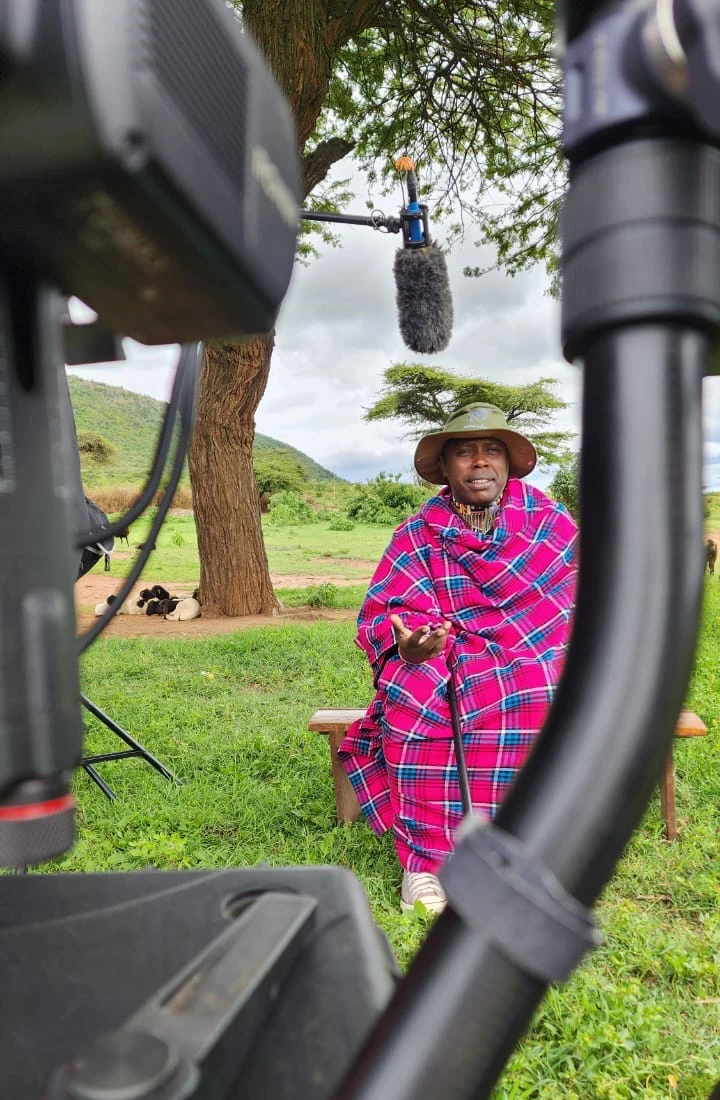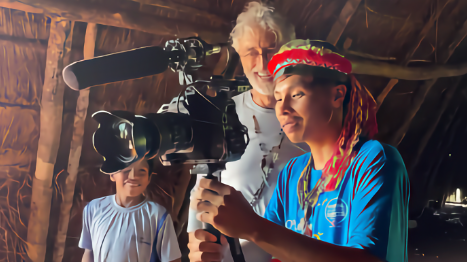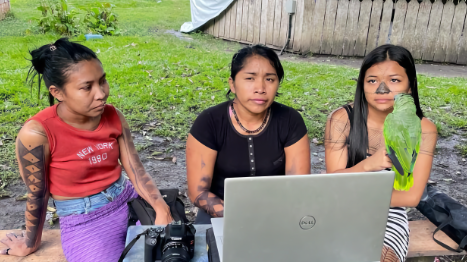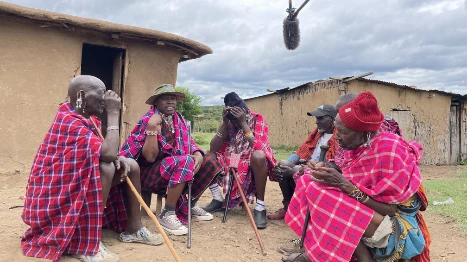Support Indigenous Communities
In the Spirit of Reciprocity
Indigenous Film Fund
Supporting Indigenous Filmmakers
This project empowers indigenous youth to become filmmakers, share their stories and protect their ancestral lands through visual storytelling.
In the Amazon village of Sawré Muybu, Brazil, we provided a production course and donated cameras to the Daje Kapap Eypi women’s audiovisual collective. Two years later, these young women have completed their first feature documentary and successfully used it to inform and mobilize the global community about illegal deforestation in their territory.
We plan to replicate this model across indigenous territories by:
- Creating a fund to support indigenous filmmakers with courses, equipment, and technical support
- Offering on-site training where teams of filmmakers teach skills directly within indigenous communities
- Establishing gathering spaces where indigenous filmmakers can learn collaboratively, exchange stories, and build networks
- Training indigenous youth to become mentors who can teach filmmaking in other communities
The next recipient will be the Maa Nation Video collective in Tanzania, started in 2009, with a vision to document Maasai community struggles for self-determination and to provide space for collective healing.
“Our videos on land rights and traditional land use have challenged the dominant media, with some even screened in Parliament as part of advocacy efforts. The authentic Maasai stories have attracted significant support from international communities, helping secure parts of our lands. We plan to amplify participatory video to more Maasai communities through peer trainings, purchase more cameras, and establish an interactive cultural center where all materials will be stored and utilized for further education.”
— Samwel Leiyian Nangiria, Maasai leader
This self-sustaining model ensures that indigenous voices are amplified, their stories are preserved, and their lands are protected through the power of film. By placing cameras in the hands of indigenous youth, we’re not just teaching technical skills—we’re fostering cultural preservation, community empowerment, and effective environmental advocacy through self-determined narratives.





